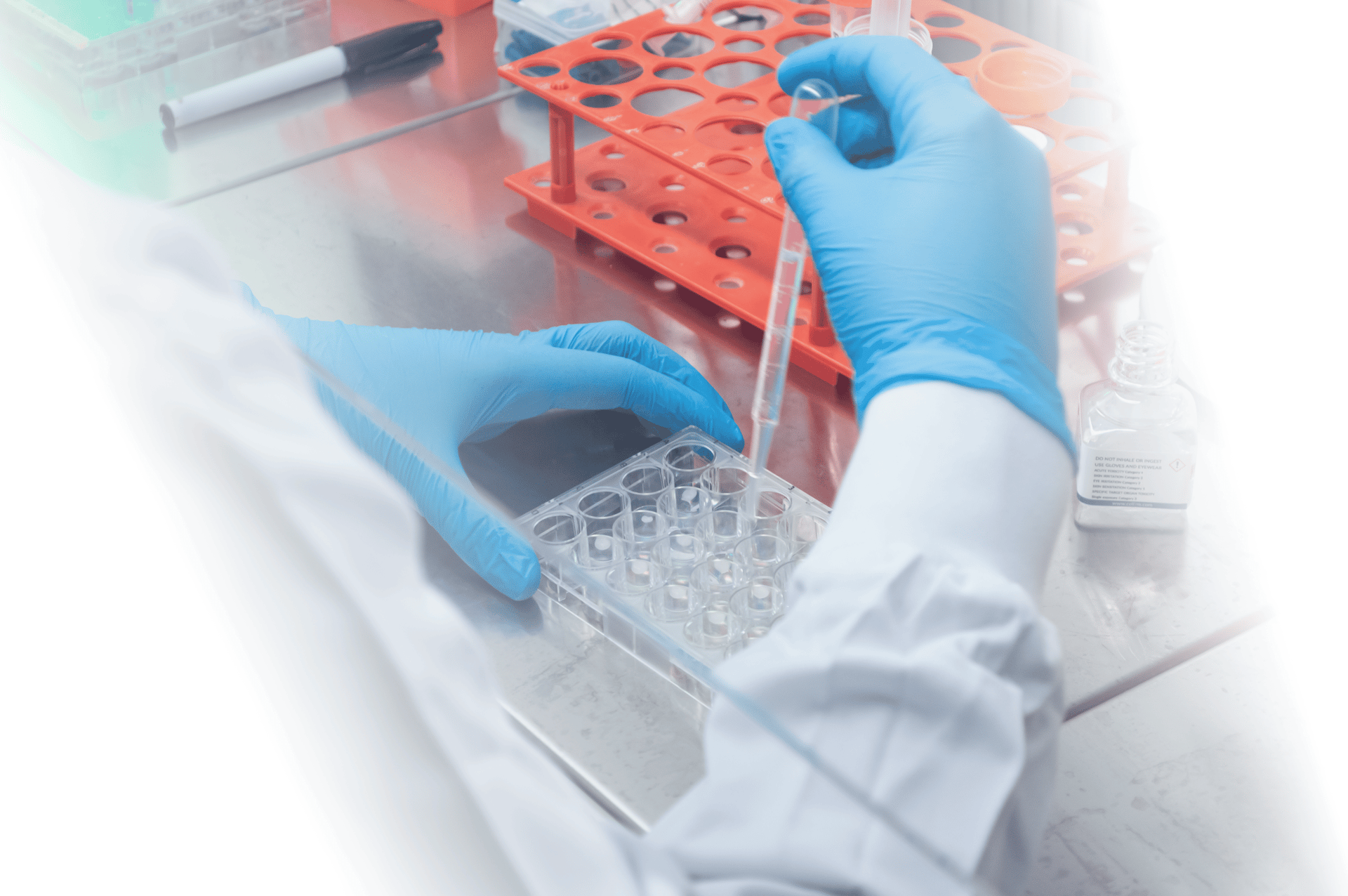
Testing
Created by world famous scientists, our team has experience in preclincal testing and innovative research on skin, scalp and hair. This has made it possible to develop models for testing drugs, cosmetics, chemicals, clothes and even food. From basic safety testing through to sophisticated studies, we can advise on your project and help your testing needs.
Overview of ex vivo, in vitro and 3D bioprinted testing
What does EX VIVO SKIN mean?
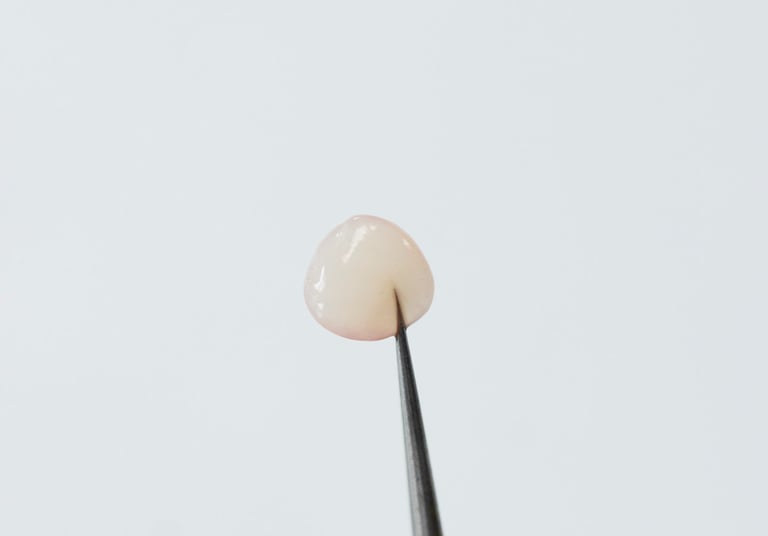

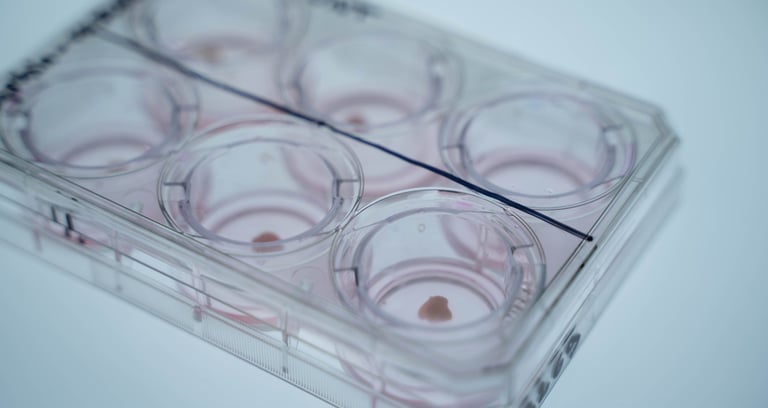

What does IN VITRO mean?
What does 3D bioprinting mean?
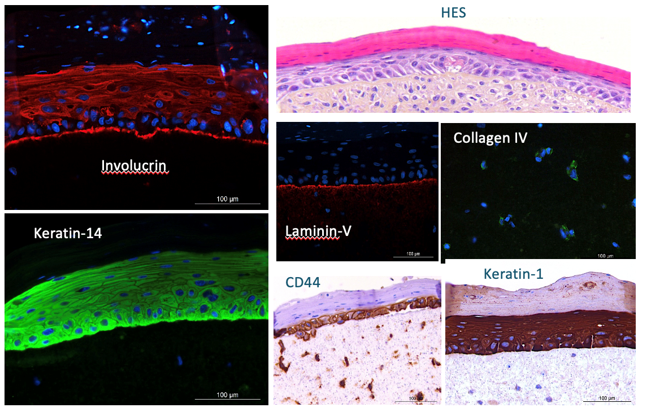

We work with hospitals and biobanks globally to access HUMAN skin from donors after appropriate legal authorizations, relevant ethics boards and consent from live patients. We do not use tissues from cadavers. We do not work with animal tissues. This is an important highlight of our work. We focus on human tissues for human research and testing. Donations come from patients undergoing plastic, or reconstructive surgeries and always with consent. Ex vivo skin is used for direct research and testing or used to create cell groups, or glands or sections to advance research and testing.
We operate to the highest standards. We are fully authorized to work with human tissues, certified ISO 9001 and recognized as a fast-growing company "PERL" by the French government.
When we receive donated skin tissues we harvest as much as we possibly can from the donation to maximise the upcycling and reuse of the donation. We expand cells like keratinocytes, fibroblasts, melanocytes and other cells from within the skin and we make them useful.Below you can see a piece of donated human ex vivo skin.
Below a plate used for in vitro testing
Some skin models can be made by hand. But this is not the future. The future is to merge engineering technology with advanced medical biology. To do this we combine our skills in the growth media we make to grow skin cells, with advanced biomaterials and 3D printing technologies. This requires advanced skill for maturation of different types of skin tissues, but allows for creating skin tailored to answering specific questions. It also advances hospital related development towards placing human skin for transplants. CTISKIN team has the world's widest range of these models and has won awards for this research.
Below some printed skin tissues
Below you can see a piece of donated human ex vivo skin
Below are some of the categories of tests that we carry out. If you can't find the category you are interested in contact us to discuss it because we may still be able to help you with our advanced skin, scalp and hair work.
Click on the button for more information :
Testing and claims categories
Test if your products have a hydrating effect on skin or scalp. From stratum corneum smoothing to stimulation of matrix production in the dermis, hydration can be short term or longer.
We have made the world's first ethical real human baby skin models for testing anything that comes into contact with a baby - creams, powders, clothes, food, etc.,
Regulations exist for what is allowed to penetrate human skin and how far. Some products are designed to help strengthen the barrier, while others are designed to pass through.
Lipids produced in the skin, primarily from sebaceous glands, help to protect the skin, not only from the sun, but also heat, chemicals and abrasion.
Products aimed and changing the composition of sweat produced in the sweat glands can be tested here. Sweat glands are also a route of drug delivery.
We have tested products designed to help strip the stratum corneum to encourage smoothness, but also products which are designed to help the stratum corneum remain thicker like younger skin.
Safety of any product on the skin is extremely important. But everyone is different. Some skin is resistant and some highly sensitive. Products need to be checked for different populations and different areas of the human body.
In today's modern world with exposure to pollution and products that did not exist 100 years ago, consideration needs to be made to the 'exposome', which is the totally of what human skin is exposed to during life.
Few organisations carry out hair research and testing because it is extremely hard to do. At CTISKIN we have created protocols for individual hair follicles for short term culture, image analysis, and longer term studies. Scalp analysis is also possible.
Antioxidant products aim to reduce damaging free radicals which can disrupt skin processes and increase the signs of ageing. Therefore, tests of these pathways are increasingly popular.
From scratches to open wounds CTISKIN has measured keratinocyte growth, the role of plasters (pansements) and even the role of the microbiome.
Screen your products on melanocyte production of melanin, or, test on full ex vivo skin for transient colour changes. We have tested not only the production of melanin, but also the sophisticated pathways involved in producing the different stages of melanin in human skin.
CTISKIN biosourcing teams have access to hospitals worldwide and can sometimes access skin which has a particular pathology such as Atopic Dermatitis. But we also have pathway protocols to understand the stages of skin related diseases.
We benefit from our immunology experts at CTISKIN who can advise on the role of the skin immune system and its response to any treatment, sun exposure, pollution, drugs or products.
All skin has a microbiome made up of combinations of bacteria that are beneficial to our system. But changes in this combination can lead to problems like Acne, Eczema and other conditions such as flaking skin or dryness. Analysis of the microbiome is not easy, but at CTISKIN we have carried out sophisticated work in this area.
Although cosmetic ingredients are not supposed to penetrate as deep as the vasculature of skin, it is possible for sequential effects to be stimulated 'top-down' with treatments. From dark circles to differences in coloration, we have investigated skin blood vessels implications.
More humans live in cities than ever before, but with this comes exposure to chemicals, plastics and pollutions. Infiltration of small molecules into skin can activate the oxidation pathways leading to ageing.
Metabolic differences occur in skin depending on the temperature, environment, diet, sun exposure and other conditions. We regularly test the response of skin and skin-derived cells
From individual cells, to combinations, or full skin pieces, we test the genetic components of skin internally and with our partners to evaluate the effects of products on genetic modulation. Working with our partners in many gene, microarray and proteomics laboratories we have access to sophisticated testing.
No longer just buzz-words, the sensorial effects of drugs and chemicals on the skin has been proven to have important effects. From analysis on individual groups of neural cells to the world's first sopisticated 3D Bioprinted skin model with a nervous system, we can help test sensorial effects.
From light emitting devices, to physical skin related products and wearable sensors, we have skin models appropriate for testing.
Reconstructive surgery and plastic reconstruction fillers can be evaluated in our CTISKIN ex vivo programs.
Our ex vivo skin and scalp can be used to test surgical devices and procedures. From small procedures to more sophisticated, we have worked with surgeons.
We have tested several microneedle products, plasters (pansements) and drug delivery patches in our ex vivo skin and 3D Bioprinted human skin models.
Skin does not just benefit from surface treatments, we have also tested how nutraceuticals, probiotics and prebiotics affect the environment of the skin.
Our sophisticated skin models are already being used for safety testing of vaccines including the new advance mRNA vaccines.
Overview of tests we offer
A summary of tests we carry out on full human skin, glands / hair extracted from skin, cells grown from human skin, and our advanced 3D Bioprinted skin models, overview appears below. Click on the box to enlarge. For more information on the test you can look at the individual claims categories above or contact us. We have extensive partners globally to help expand the range of tests we can offer. If you can't find a particular test, we probably have access to it.
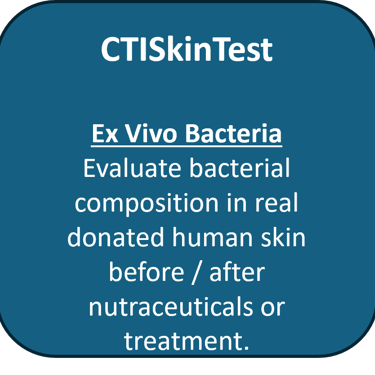
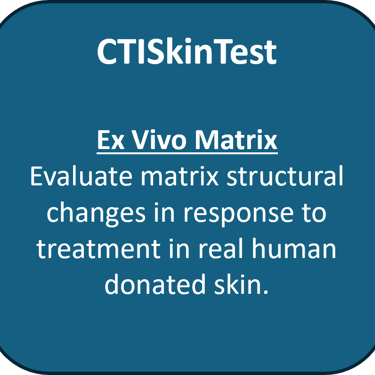
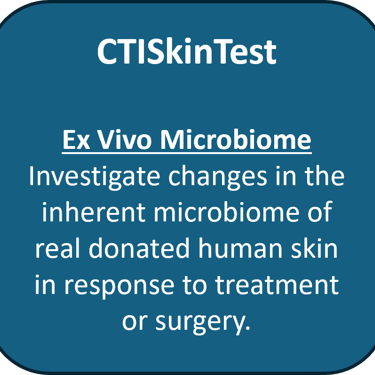
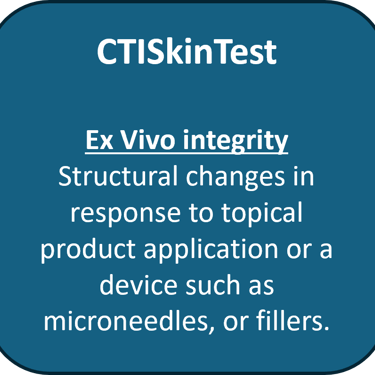
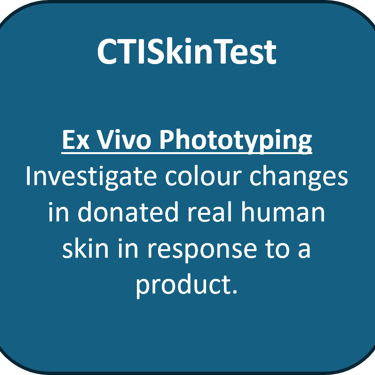
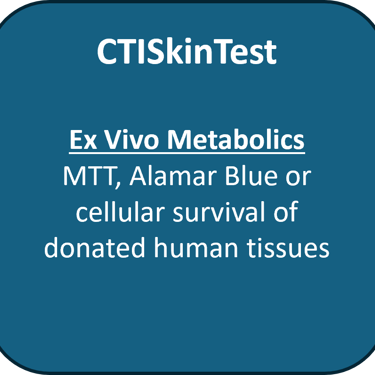
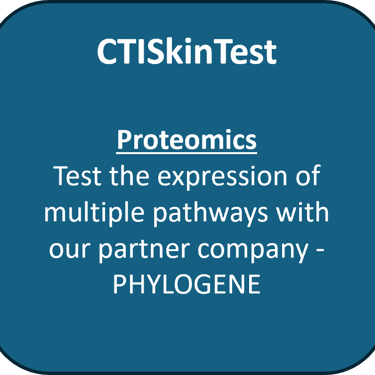
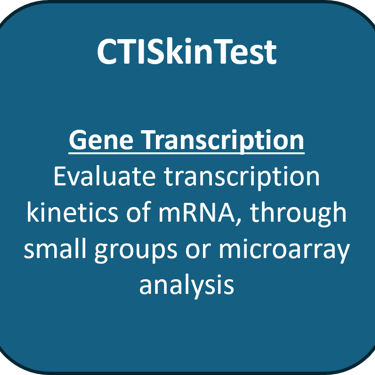
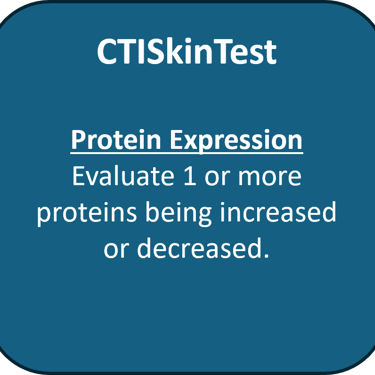
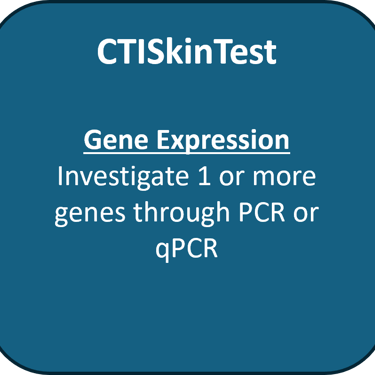
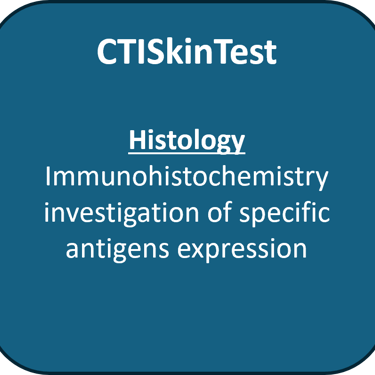
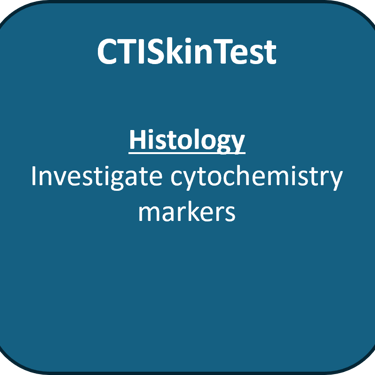
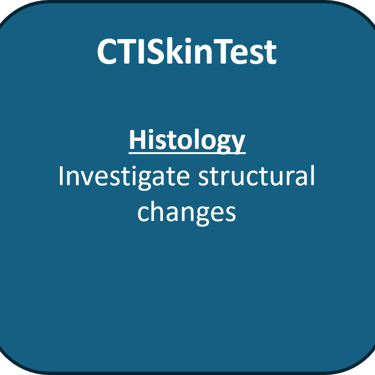
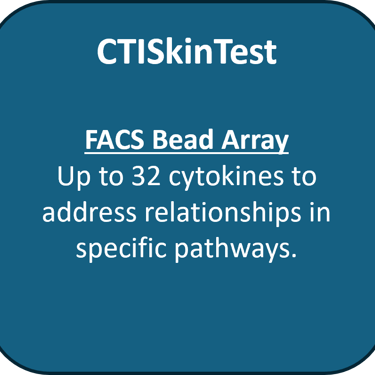
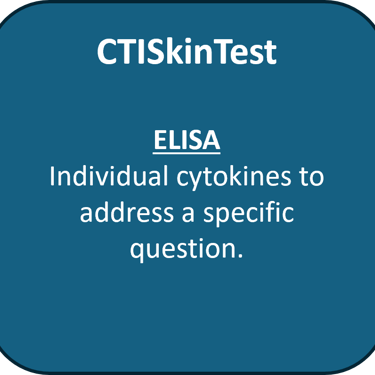
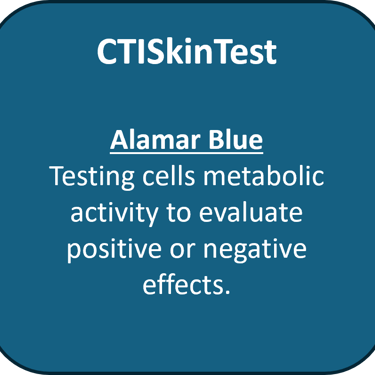
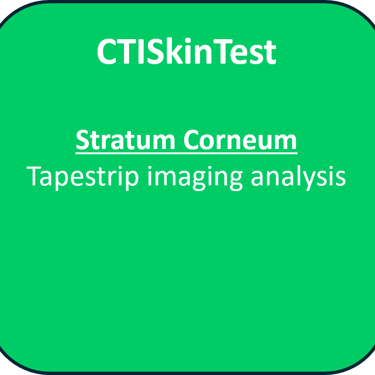
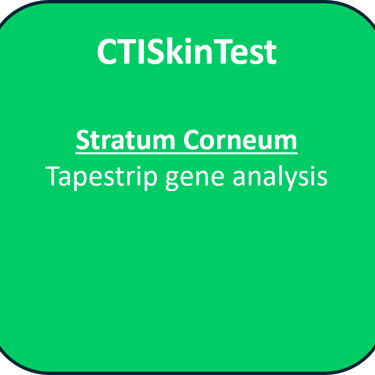
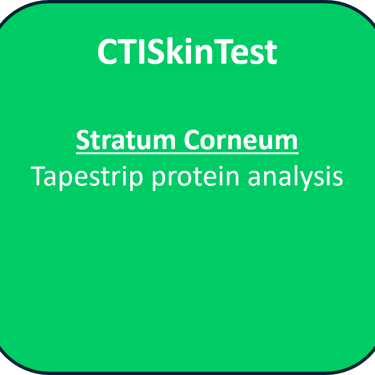
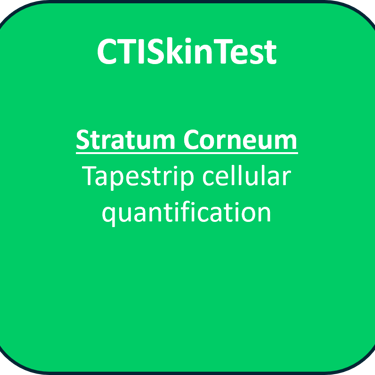
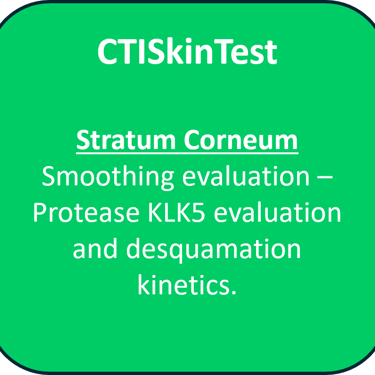
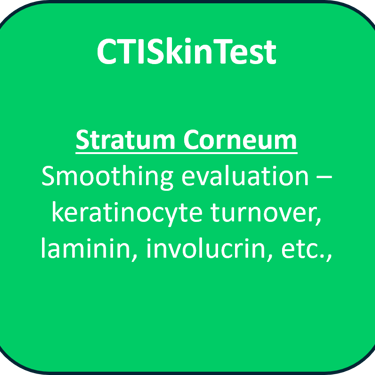
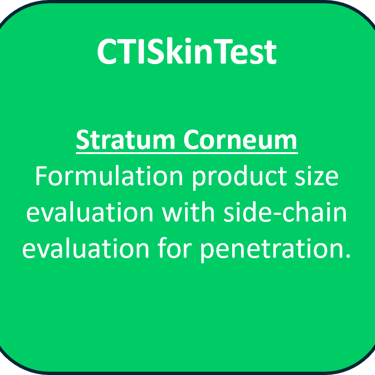
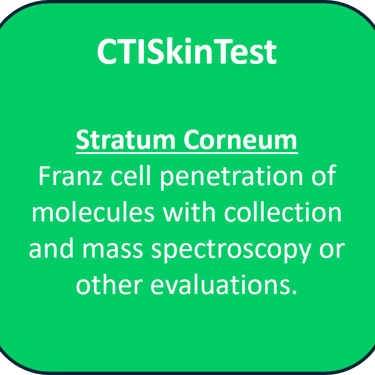
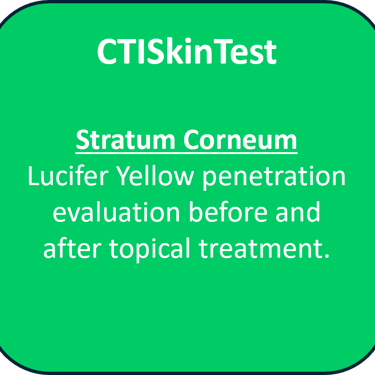
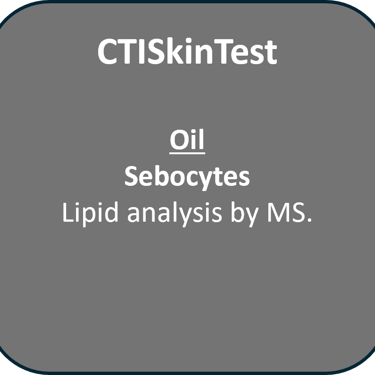
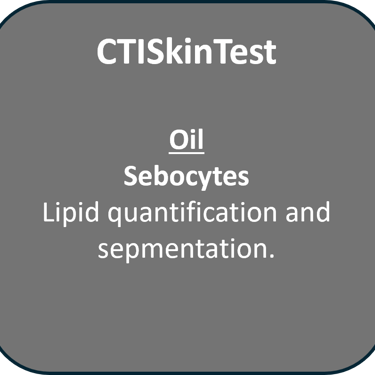
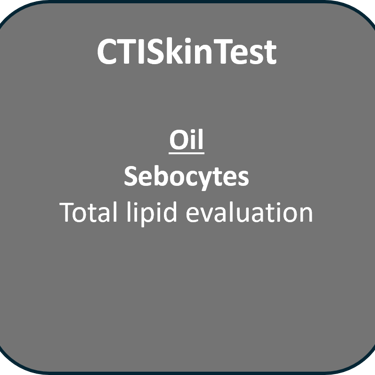
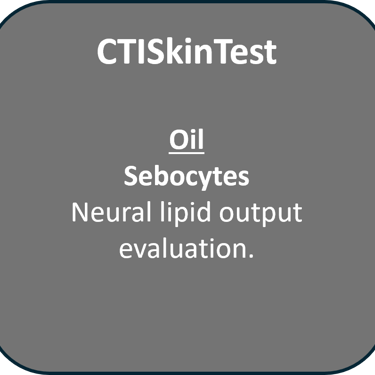
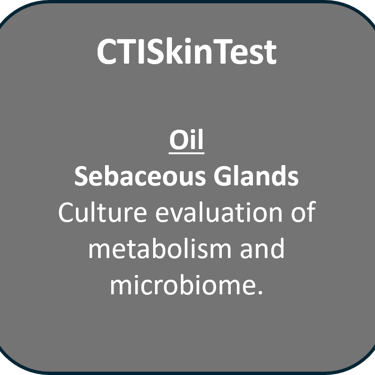
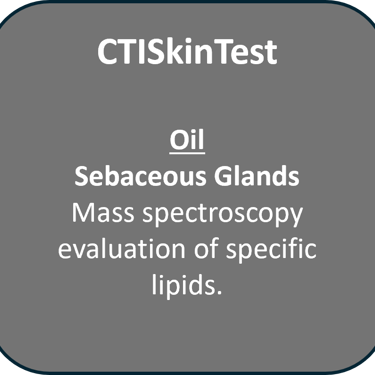
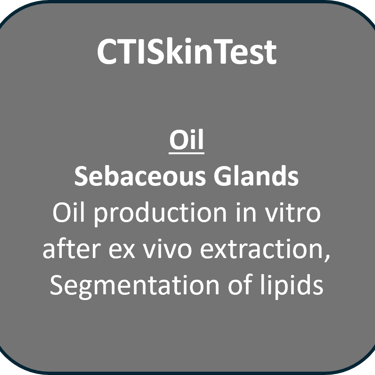
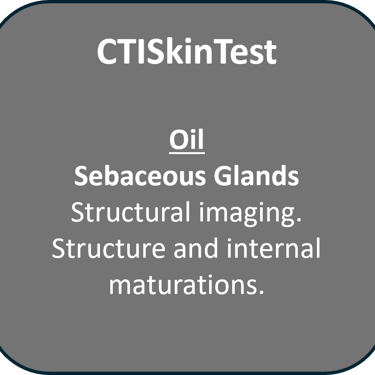
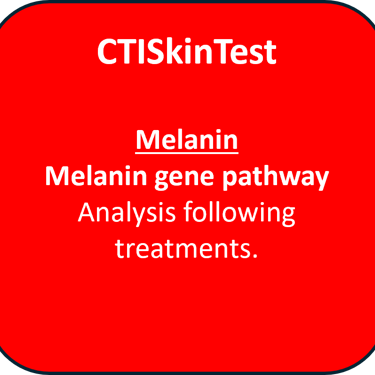
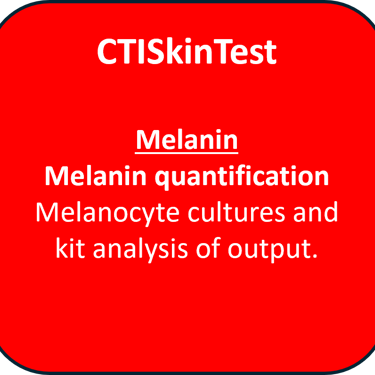
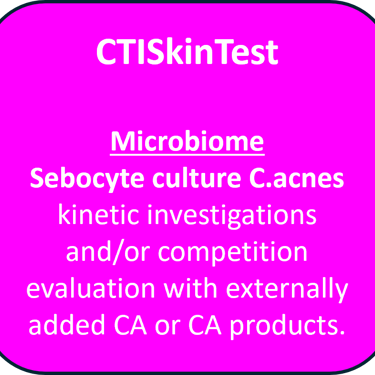
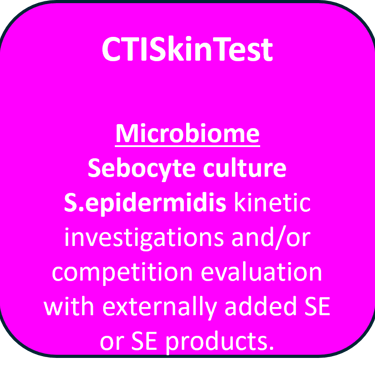
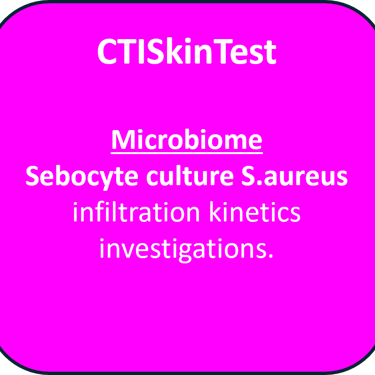
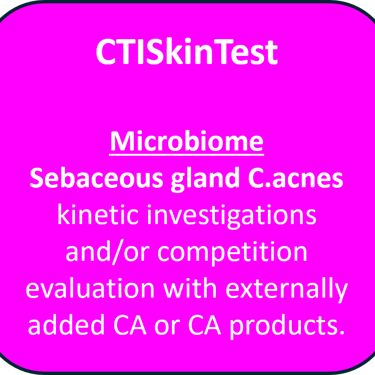
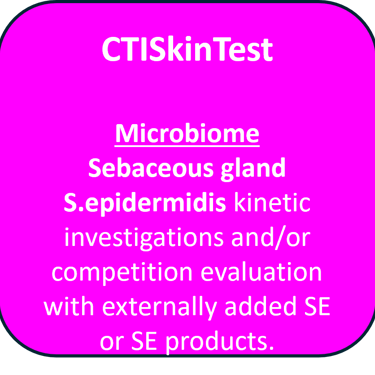
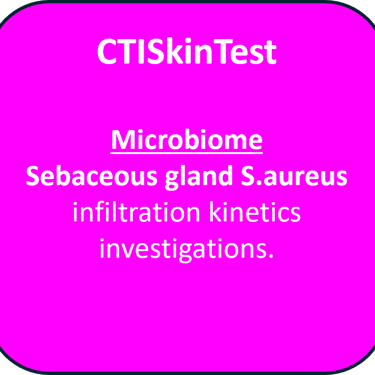
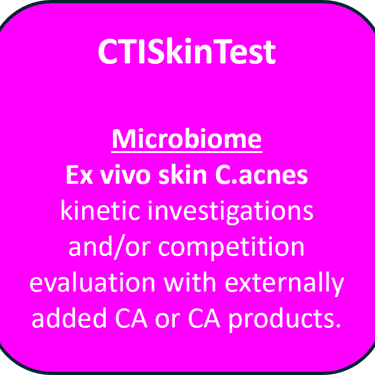
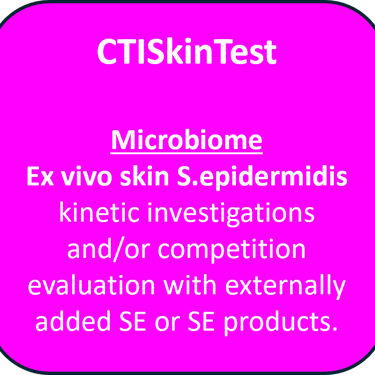
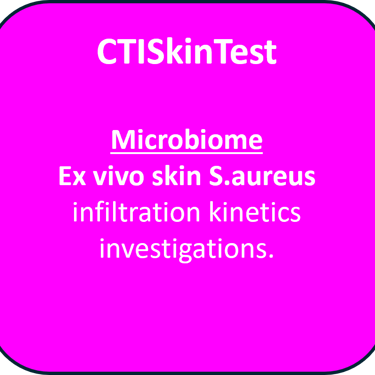
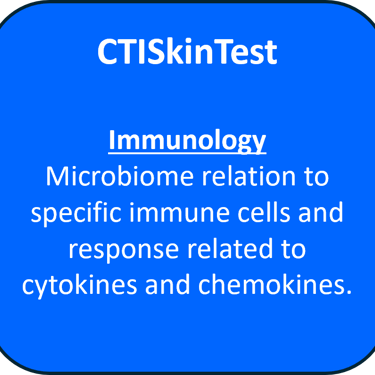
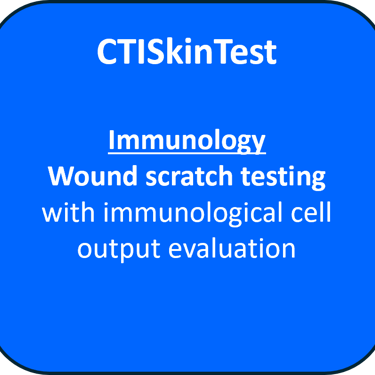
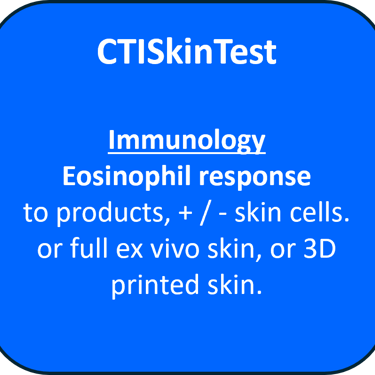
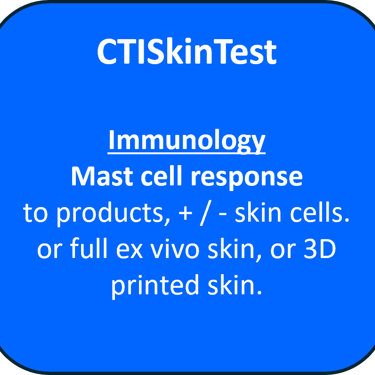
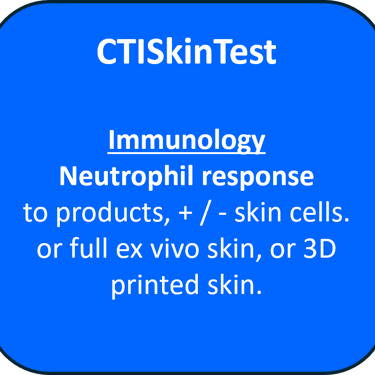
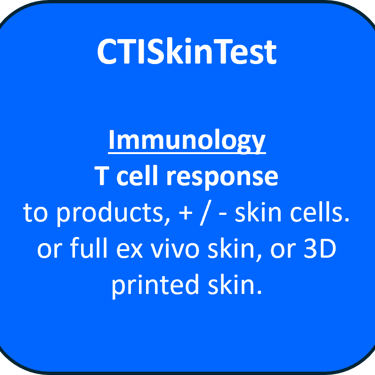
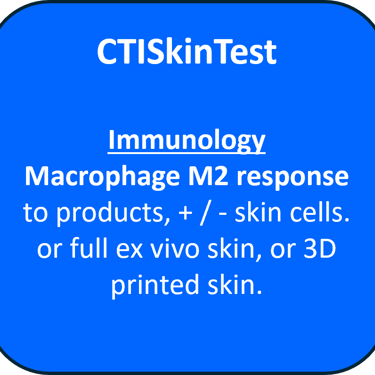
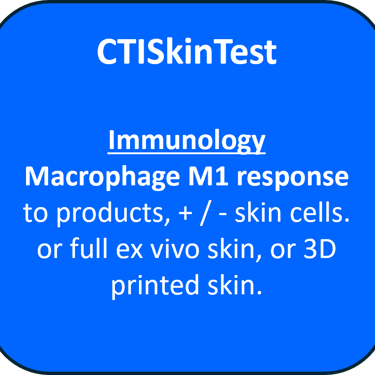
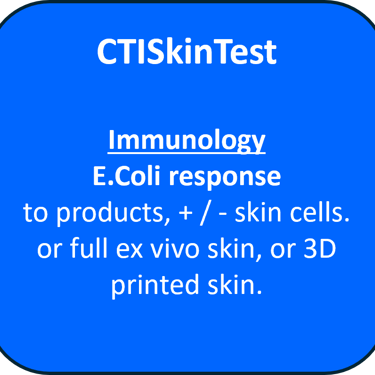
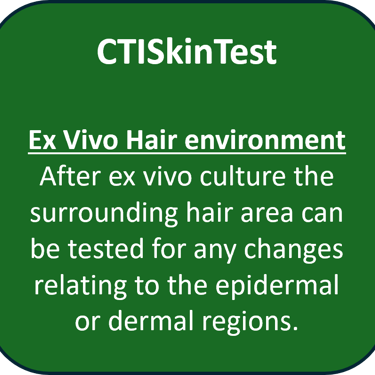
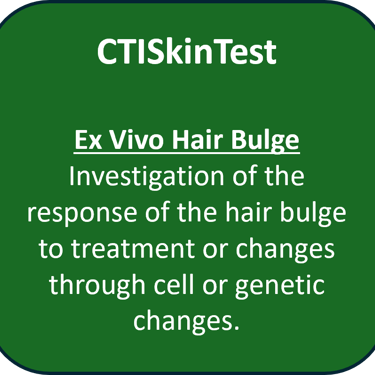
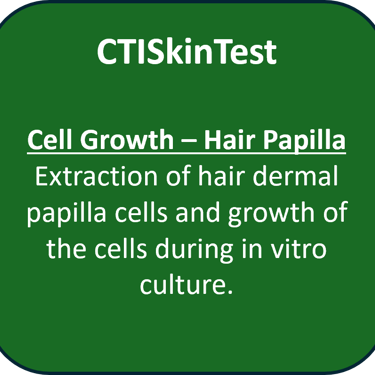
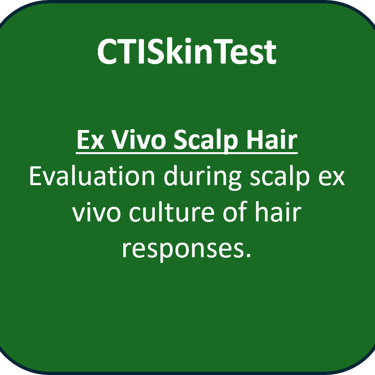
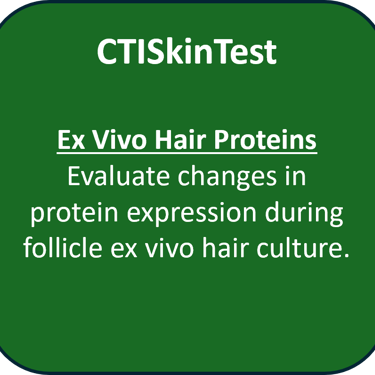
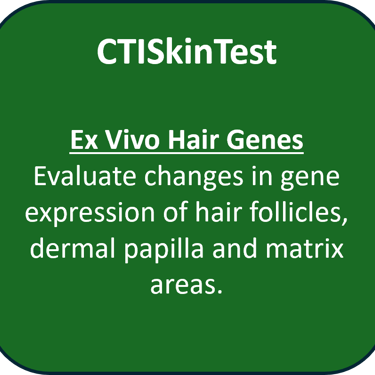
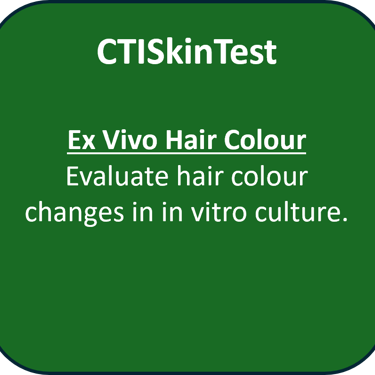
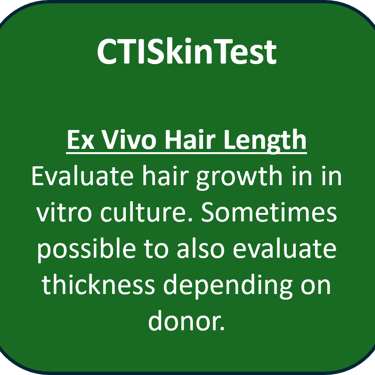
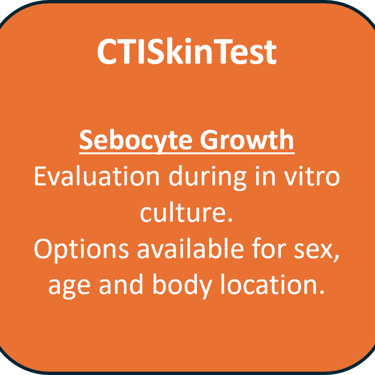
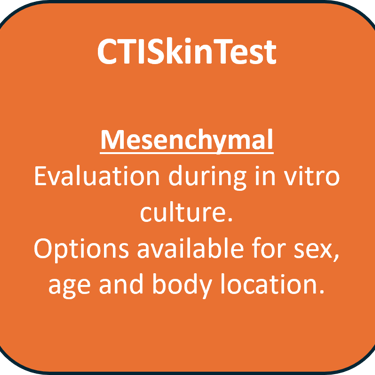
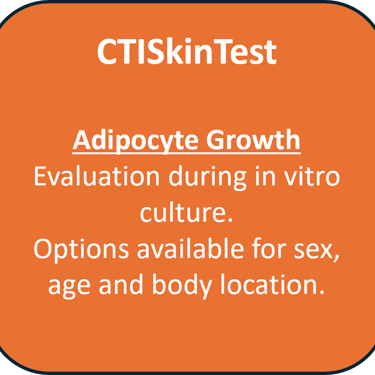
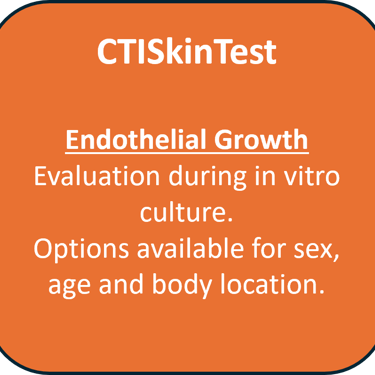
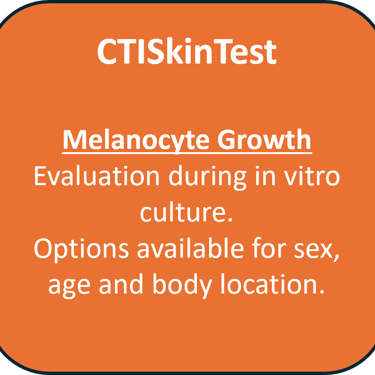
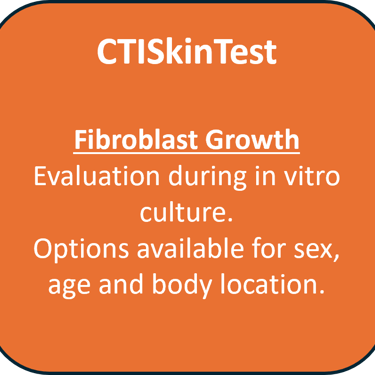
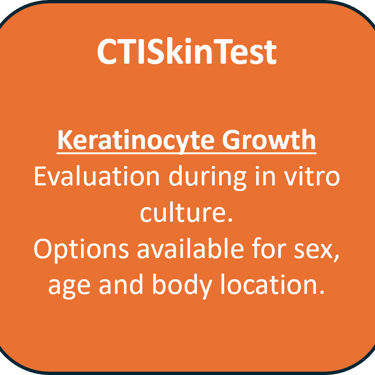
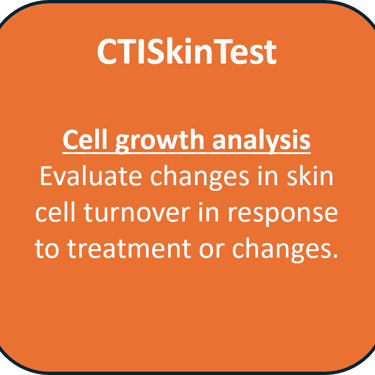
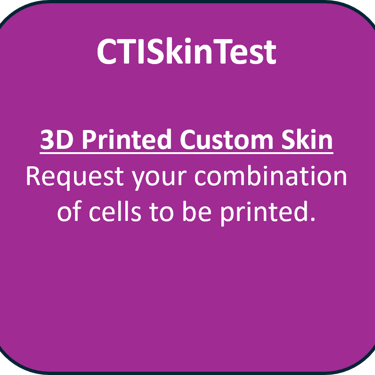
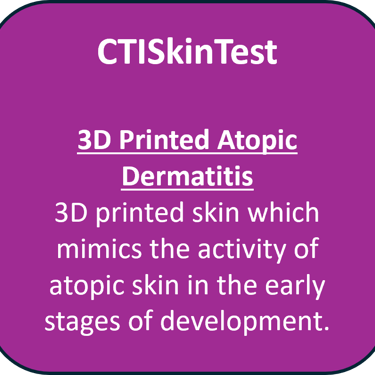
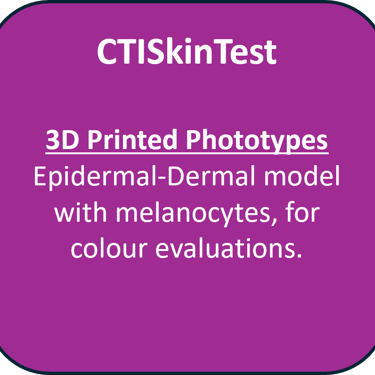
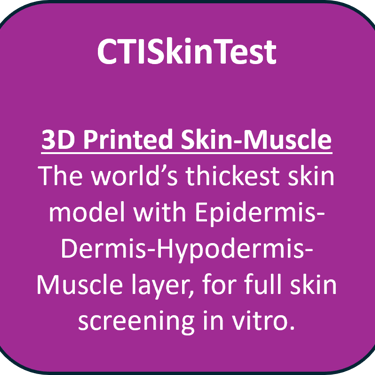
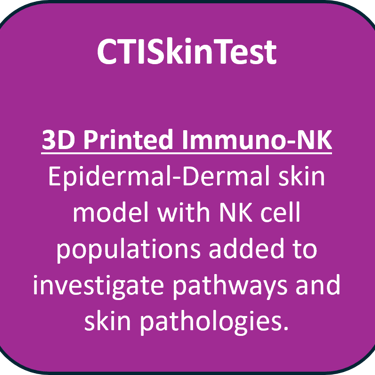
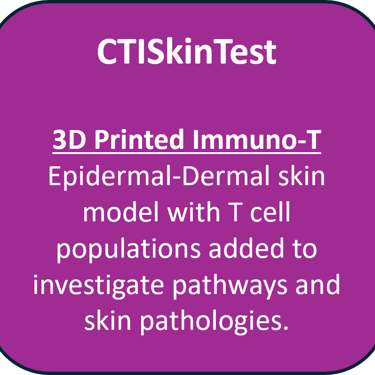
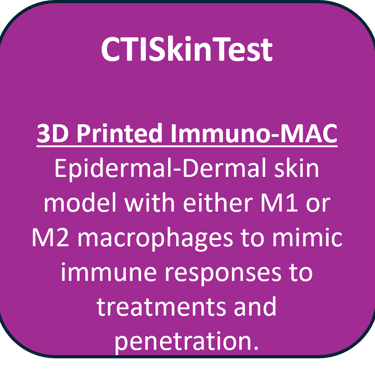
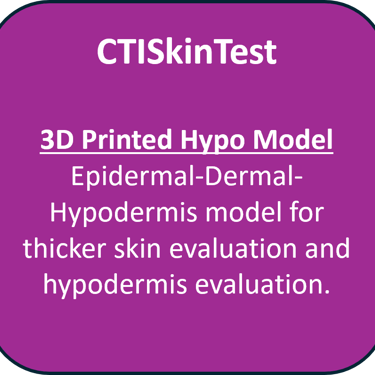
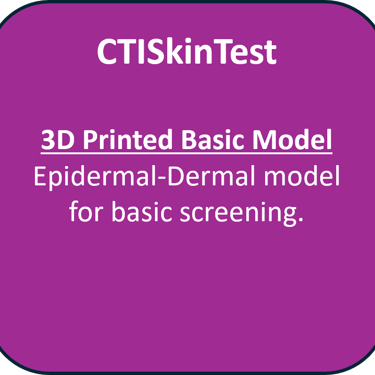
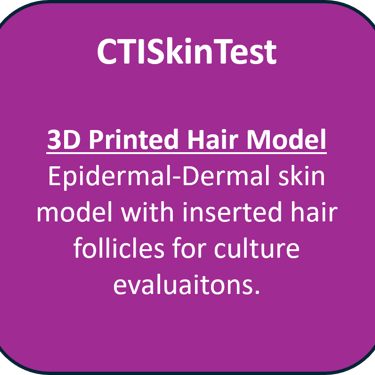
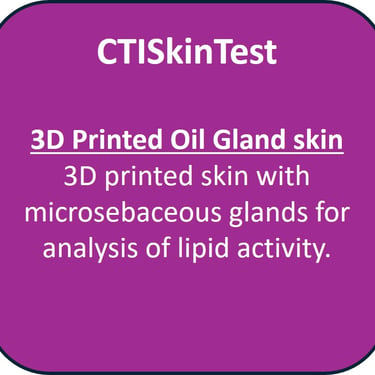
Want to do it yourself?
We can help you - with our biosourcing of skin and cells.
Visit our dedicated biosourcing and biobanking website dedicated to providing you with cells and tissues for your testing and research
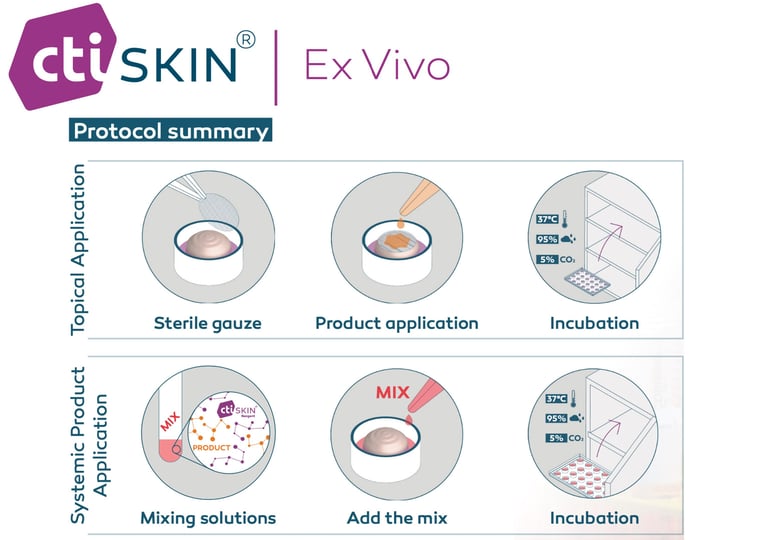

On our biobanking website you will see examples of skin kits available.
We also have many skin related skin cells available from multiple donors, phototypes, and body regions.
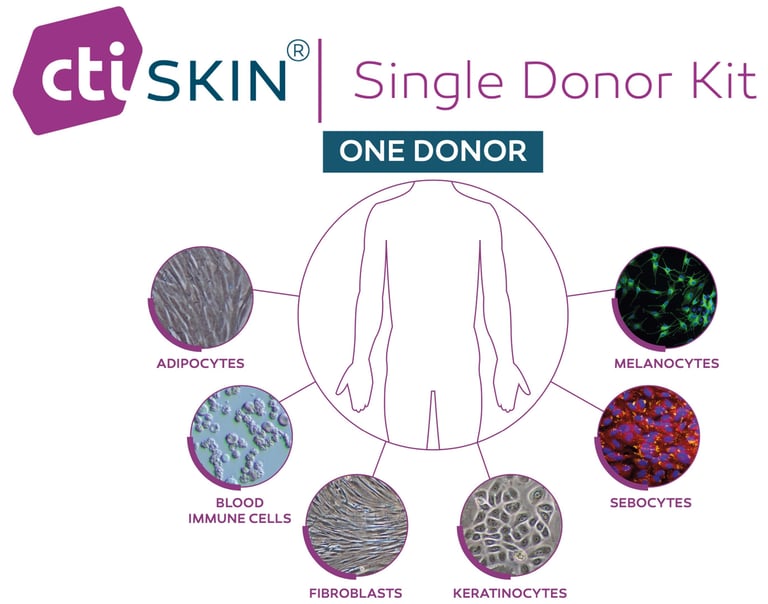

Certifications
We operate to the highest standards. We are fully authorized to work with human tissues, certified ISO 9001 and recognized as a fast-growing company "PERL" by the French government.
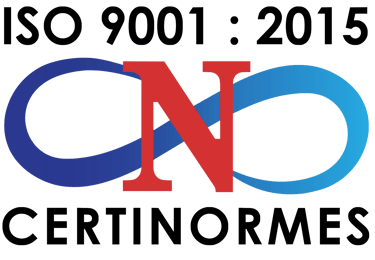






Get In Touch
Want to discuss your project for testing?
Want to collaborate on research with us?
Want to buy cells and tissues for skin research and testing?
Contact us here!
Address
CTIBIOTECH
Bat A16, 5 avenue Lionel Terray
69330 Meyzieu
Lyon, France
Subscribe to our newsletter


